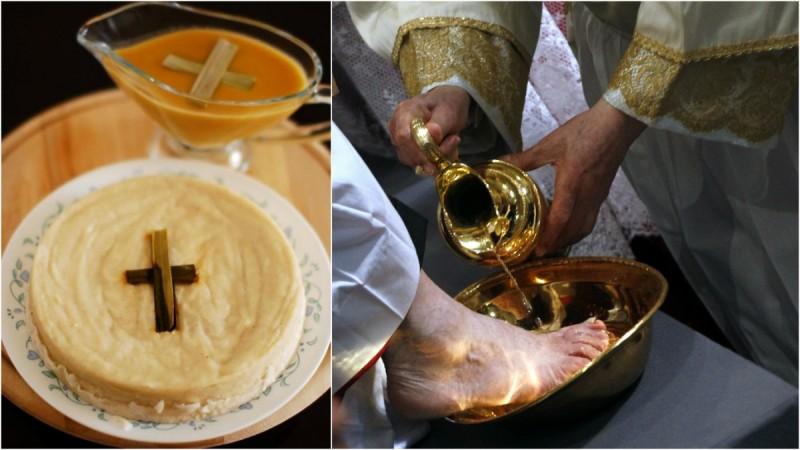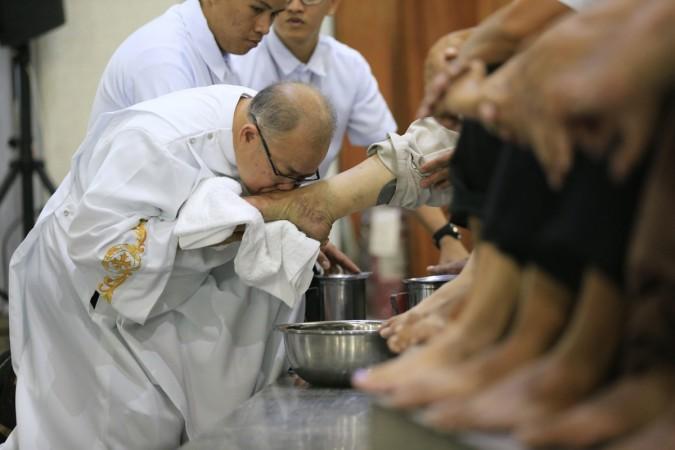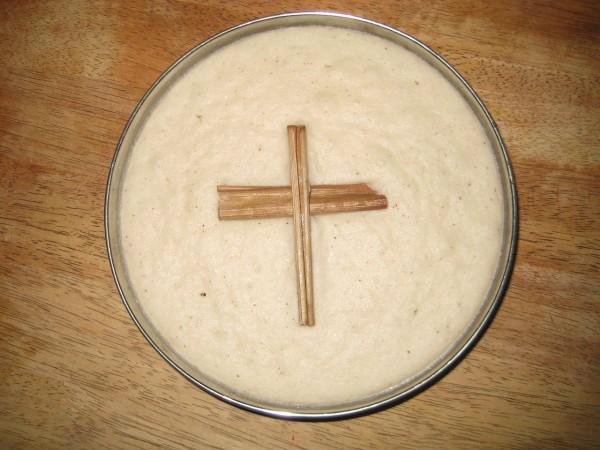
The Holy Week is round the corner with Christians all across the globe mourning the death of Jesus Christ. One of the important days in the Holy Week is Maundy Thursday, which falls on April 13 this year.
Why is Maundy Thursday observed?
The word Maundy comes from the Latin antiphon Mandatum Novum, which means 'a new mandate.' Maundy Thursday is observed a day before Good Friday, and commemorates the last supper the Son of God had with his 12 disciples.
"Now as they were eating, Jesus took bread, and blessed, and broke it, and gave it to the disciples and said, 'Take, eat; this is my body.' And he took a cup, and when he had given thanks he gave it to them, saying, 'Drink of it, all of you; for this is my blood of the covenant, which is poured out for many for the forgiveness of sins. I tell you I shall not drink again of this fruit of the vine until that day when I drink it new with you in my Father's kingdom' (Matthew 26:26-29 RSV)."
Maundy Thursday also commemorates the institution of Holy Eucharist and the Sacrament of Ordination. It was also the day when Jesus wept in the Garden of Gethsemane hours before his crucifixion. His disciple Judas Iscariot double-crossed Jesus for 30 pieces of silver.
How is Maundy Thursday observed?
As part of Maundy Thursday, special holy mass was will be held at churches, where the priest washes and wipes the feet of 12 men, who represent the disciples of Jesus.

In the Southern state of India, Kerala, the day is known as Pesaha and has a tradition of preparing Pesaha Appam (bread) aka Indariyappam, made using unleavened flour and a drink made of jaggery and coconut milk. The head of the family will break the bread with other members.
Check: How to make Kerala style Pesaha appam

Check out Bible verses, quotes on Maundy Thursday:
The Eucharist is the source and summit of the Christian life. — Pope John Paul II
God dwells in our midst, in the Blessed Sacrament of the altar. — St. Maximilian Kolbe
I hunger for the bread of God, the flesh of Jesus Christ ...; I long to drink of his blood, the gift of unending love. — St. Ignatius of Antioch
The Bread that we need each day to grow in eternal life, makes of our will a docile instrument of the Divine Will; sets the Kingdom of God within us; gives us pure lips, and a pure heart with which to glorify his holy name. — Edith Stein
The Eucharist is the Sacrament of Love; It signifies Love, it produces Love. — St. Thomas Aquinas
It would be easier for the world to survive without the sun than to do so without the Holy Mass. — Saint Padre Pio
For I received from the Lord what I also delivered to you, that the Lord Jesus on the night when he was betrayed took bread, and when he had given thanks, he broke it, and said, 'This is my body which is for you. Do this in remembrance of me.' In the same way also he took the cup, after supper, saying, 'This cup is the new covenant in my blood. Do this, as often as you drink it, in remembrance of me.' For as often as you eat this bread and drink the cup, you proclaim the Lord's death until he comes. — 1 Corinthians 11:23-26
So Jesus said to them, 'Truly, truly, I say to you, unless you eat the flesh of the Son of Man and drink his blood, you have no life in you. — John 6:53
And as they were eating, he took bread, and after blessing it broke it and gave it to them, and said, "Take; this is my body." And he took a cup, and when he had given thanks he gave it to them, and they all drank of it. And he said to them, "This is my blood of the covenant, which is poured out for many. — Mark 14:22-24
In the days of his flesh, Jesus offered up prayers and supplications, with loud cries and tears, to him who was able to save him from death, and he was heard because of his reverence. — Hebrews 11:1
A new commandment I give to you, that you love one another: just as I have loved you, you also are to love one another. — John 13:34

















